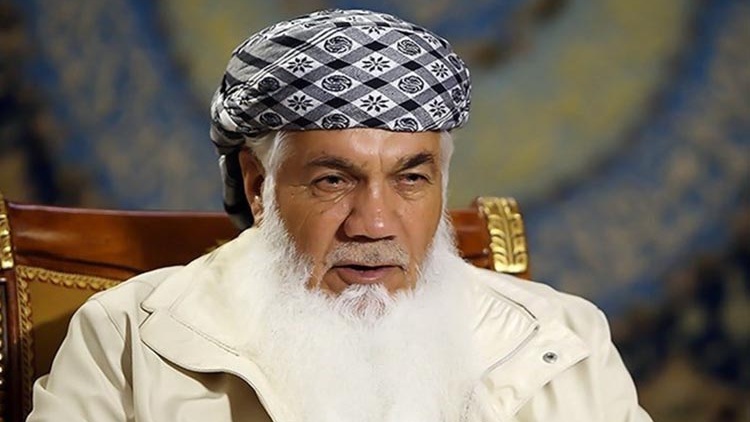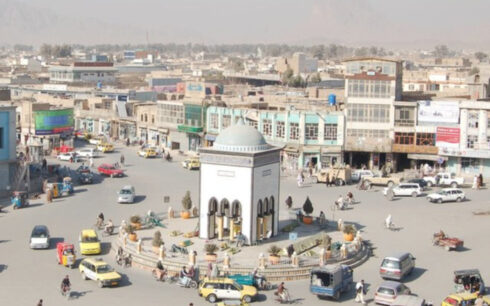Former jihadi leader Mohammad Ismail Khan has established the “Islamic Council of Resistance Unity” in Iran to mobilize former jihadi commanders in the fight against the Taliban in Afghanistan.
Sources familiar with the matter told Amu TV that the council officially started its work on Thursday during a session at Ismail Khan’s home in the city of Mashhad in Iran.
One of the participants at the meeting said that the council is led by Ismail Khan and Mohammad Taha Sadiq, a former member of parliament and a son of Ismail Khan, would manage the council.
A number of military commanders of the western Zone, Kandahar, Baghlan, Kapisa, Nuristan, and some other provinces, as well as a number of former government officials, attended the meeting.
Ismail Khan has raised concerns about the current situation in Afghanistan, in particular the continuation of restrictions on women and the systematic deprivation of their rights by the Taliban.
The sources added that Ismail Khan emphasized the need for armed combat against the Taliban and said: “We must unite the ranks for the armed [forces].”
This former jihadi commander, meanwhile, stated that two Hazara leaders, including the former head of the high peace council Karim Khalili and the leader of Hezb-e-Wahdat Islami party Muhammad Mohaqiq, appeared to have a weak stance against the Taliban and that they should have been among the Hazara people in Iran during these difficult times.
He also called on all the leaders and personalities to gather under one umbrella and to rise up with the demand for “liberation of the western zone from occupation.”
Denouncing the Taliban’s decisions banning Afghan women from working for NGOs and getting an education, Ismail Khan said that he “regretted the Taliban’s increase in cruel educational restrictions for sisters in universities, which is against all Islamic standards and human rights.”
He stated that the Taliban’s decisions are not only a denial of Afghan women’s rights but also a serious threat to the development of the country.
Sources said that another military-political movement, consisting of a number of former jihadi commanders, former Afghan soldiers, and some former military and civilian elites, which operates under the name “Amir Hamzah Council” in Mashhad city also has close ties with the Ismail Khan council.
A military analyst Mohammad Naeem Ghayur stated that the military option was not a proper solution for the current situation in Afghanistan, adding: “A worsening situation and more restrictions and extremism by the ruling group on the people of Afghanistan, would lead to the establishment of more fronts.”
Ghayor warned that the continuation of the current situation in Afghanistan would increase tension, and that the formation of more fronts and councils would further deteriorate Afghanistan’s situation.
“The Taliban must list their structures and restrictions and start negotiating,” he added.
People’s optimism about the establishment of the council
A number of Herat residents said that they were optimistic about the formation of the council.
Ghiyasuddin, a resident of Herat city, said: “People have nothing to lose, it is necessary to form such a council. They should do practical work instead of announcements and slogans. Because of these restrictions imposed by the Taliban, there is no other choice but to fight against them, and we must fight against this group in every possible way.”
Maudod, another resident of Herat, stated that issuing announcements and slogans was not enough and that “people can no longer live under the rule of the Taliban.”
Following the Taliban takeover, a number of Afghan politicians in exile gathered several times and spoke of the formation of resistance against the Taliban.





